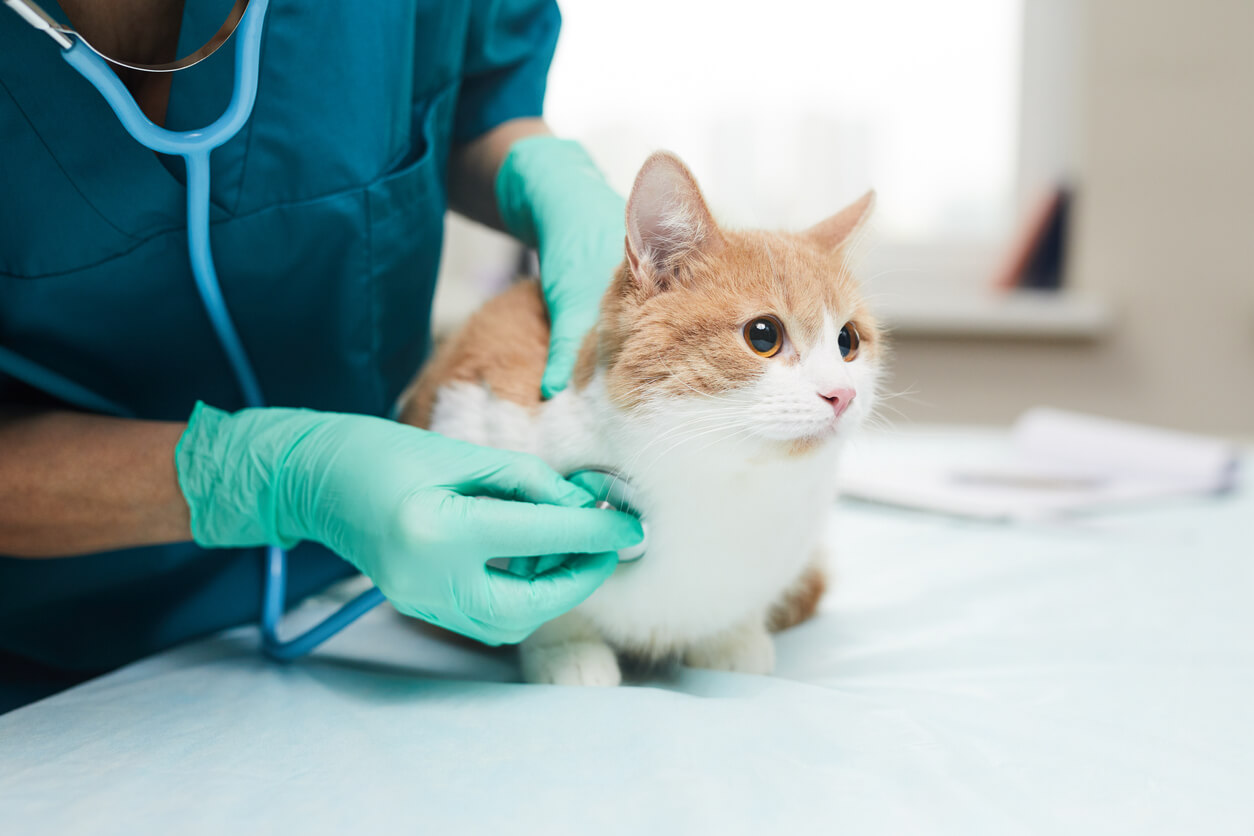Vaccination Standards From Your Relied On Veterinarian
Vaccination guidelines offered by your trusted veterinarian play an important duty in safeguarding your animal's health and wellness. Core vaccinations are fundamental for all animals, while non-core vaccines can be tailored to particular way of lives and ecological direct exposures. Understanding the subtleties of vaccination routines, which begin as very early as six to eight weeks, is essential for optimal defense. Furthermore, resolving common false impressions surrounding vaccinations can additionally enhance pet proprietors' self-confidence in these safety nets. As we discover these vital facets, it ends up being progressively clear why regular appointments with your veterinarian are essential for educated decision-making.

Value of Inoculations
Vaccinations play an essential duty in safeguarding family pets versus a series of preventable illness. By boosting the body immune system to identify and deal with specific microorganisms, injections significantly minimize the occurrence of infectious conditions that can impact a pet dog's wellness and long life. Not just do vaccinations secure private animals, yet they likewise add to herd resistance, consequently reducing the overall frequency of conditions in the family pet population.
Timely inoculations aid to alleviate the spread of diseases such as rabies, parvovirus, and distemper, which can have extreme consequences for both humans and pet dogs. Moreover, vaccinations are typically a need for boarding centers, grooming services, and pet parks, making them vital for those that desire to mingle their animals.

Core Vaccines for Animals
While the certain vaccination demands of animals can vary based upon specific variables, core vaccinations are universally recommended to secure versus the most major and typical diseases (Vet Enterprise). Core injections are those deemed important for all pet dogs, no matter their lifestyle or geographical area, as they secure versus possibly fatal and highly transmittable ailments
For pets, the core injections include those for canine distemper, parvovirus, adenovirus (hepatitis), and rabies. Adenovirus can result in liver illness, while rabies is a zoonotic condition that positions a threat to both pet dogs and humans.
In pet cats, core vaccinations encompass feline panleukopenia, feline calicivirus, feline herpesvirus (rhinotracheitis), and rabies. Feline panleukopenia is an extremely infectious viral illness that affects the immune system and intestines. Calicivirus and herpesvirus are major contributors to top respiratory system infections in felines, while rabies remains an important concern for public health and wellness.
Talk to your veterinarian to guarantee your pet dogs obtain their core inoculations on timetable.
Non-Core Vaccines Explained
Non-core vaccines are tailored to attend to certain risks associated with a pet dog's way of living, setting, and direct exposure to particular conditions. Unlike core vaccinations, which are universally advised for all pet dogs, non-core vaccinations are taken into consideration based upon private conditions. These vaccinations are especially essential for pets that might come across distinct microorganisms as a result of their geographical location, travel routines, or tasks.
Examples of non-core vaccinations consist of those for Bordetella bronchiseptica, which is linked to kennel cough, and Lyme illness, triggered by ticks. Family pets that frequently connect with various other pets, such as those in boarding centers, canine parks, or brushing atmospheres, might profit from Bordetella vaccination. In a similar way, if you reside in a location where Lyme illness is prevalent, immunizing versus this condition can be a sensible option for outdoor-loving pet dogs.
Other non-core vaccinations may include those for leptospirosis, canine influenza, and feline leukemia, depending upon the details threat variables existing. It is vital to have an extensive conversation with your vet about your pet's way of living and the possible demand for these vaccinations, making sure a tailored vaccination approach that best safeguards your furry buddy.
Vaccination Schedule Overview

As animals develop, it is essential to comply with the recommended booster inoculations. Emergency Vet. For grown-up animals, core vaccinations are generally provided each to three years, depending upon the specific vaccine and regional regulations. Non-core injections might be suggested based upon lifestyle factors and regional disease prevalence, requiring a tailored technique
Regular veterinary exams are important for upgrading vaccination schedules. Your veterinarian can provide support on the most suitable booster shots for your family pet, factoring in age, health standing, and environmental threats. By staying aggressive and informed, pet dog owners can guarantee find more info their furry companions obtain effective and prompt vaccinations, thus protecting their health and wellness throughout their lives.
Typical Myths About Vaccinations
Misconceptions concerning pet vaccinations can bring about complication and reluctance amongst animal owners pertaining to the booster shot process. One widespread misconception is that vaccines are unneeded for indoor family pets. While it's real that indoor family pets deal with reduced dangers, they are not completely immune to illness, as pathogens can be introduced with different ways, including human garments and various other family pets.
An additional misunderstanding is that vaccinations can cause the diseases they intend to avoid. In truth, many vaccinations have inactivated or undermined pathogens, which can not cause illness in healthy pets. Some animal owners likewise believe that their pet dogs need to not be immunized if they are currently healthy and balanced; however, inoculations are an aggressive action that assists stop the onset of disease.
Furthermore, many pet dog owners fear that vaccines will certainly lead to long-term health difficulties. The advantages of vaccination-- shielding pet dogs from potentially deadly diseases-- much surpass the dangers.
Conclusion
In recap, adherence to inoculation guidelines is critical for making certain the wellness and durability of pet dogs. Core vaccines give necessary security versus significant diseases, while non-core vaccinations deal with particular dangers based upon private lifestyles. Establishing a comprehensive inoculation routine, along with routine veterinary examinations, promotes get redirected here ideal wellness administration. Resolving usual myths surrounding vaccinations additionally reinforces the importance of educated decision-making in pet dog treatment. Ultimately, an aggressive method to inoculations is vital for maintaining family pet well-being.
Not only do vaccinations protect specific pets, yet they also add to herd resistance, consequently lowering the total prevalence of conditions in the pet dog population.
Misconceptions regarding pet dog vaccinations can lead to confusion and reluctance amongst family pet owners pertaining to the immunization procedure. While it's real that indoor animals deal with reduced dangers, they are not completely immune to illness, as microorganisms can be presented through various means, including human clothes and various other animals.
Some family pet owners additionally think that their family pets ought to not be vaccinated if they are already healthy; nonetheless, inoculations are a positive measure that aids stop the onset of health problem.
The benefits of inoculation-- safeguarding family pets from possibly serious conditions-- much exceed the threats.